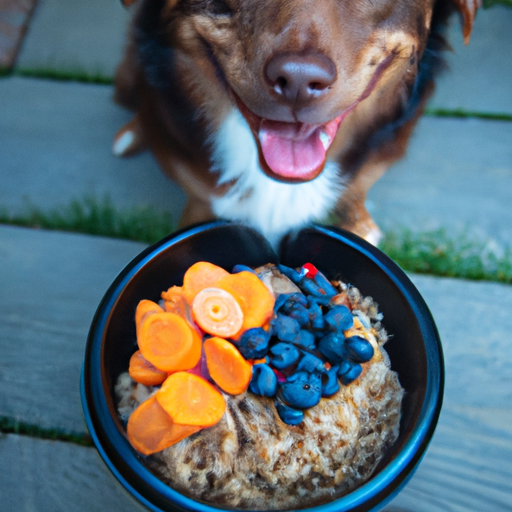As a caregiver, one of your top priorities is ensuring the health and well-being of those in your care. This goes beyond just humans; it extends to our four-legged friends too! Here, we will deep dive into the right foods for your canine companions.
1. Meat – The Core of a Balanced Canine Diet
Dogs, like their wolf ancestors, are predominately carnivorous. Though they can consume a variety of other foods, meat should form a significant portion of their diet. High-quality, lean meats like chicken, turkey, and beef provide essential proteins and amino acids that your dog needs to stay healthy.
- Chicken: High in protein, low in fat.
- Turkey: Similar to chicken, also a good source of Riboflavin and Phosphorus.
- Beef: Rich in essential vitamins and minerals like B12, Zinc and Iron.
2. Fruits and Vegetables – The Colorful Addition
Despite their carnivorous leanings, dogs can benefit from a range of fruits and vegetables. These provide necessary vitamins, minerals, and fiber, which can improve digestion and enhance overall health.
- Apples: A source of vitamins A and C, and fiber.
- Carrots: High in beta carotene, which converts into vitamin A.
- Blueberries: Packed with antioxidants, great for a dog’s immune system.
3. Grains – The Energy Providers
Some dogs can benefit from the inclusion of grains in their diet. Grains like rice, oatmeal, and quinoa can provide energy, fiber, and nutrients.
| Grain | Benefits |
|---|---|
| Rice | Easy to digest, good for upset stomachs |
| Oatmeal | High in fiber and vitamins |
| Quinoa | Packed with protein and nutrients |
4. Fish and Eggs – The Protein-rich Supplements
Fish and eggs are also excellent additions to your dog’s diet. They’re rich in protein, and fish, in particular, is a great source of omega-3 fatty acids, which can promote skin and coat health.
- Fish: High in omega-3, good for skin and coat.
- Eggs: A source of digestible protein, Riboflavin, and Selenium.
5. Dairy – The Optional Extras
Some dogs can tolerate dairy and can benefit from the added calcium and protein. However, many dogs are lactose intolerant, so it’s best to introduce dairy slowly and in small amounts.
- Cheese: Can be a good source of protein and calcium.
- Yogurt: Contains probiotics, which can aid in digestion.
FAQ
Q: Can dogs eat all fruits and veggies?
A: No, some like grapes and onions can be harmful.
Q: How often should I feed my dog grains?
A: Grains should not make up more than 10% of your dog’s diet.
Q: Can all dogs tolerate dairy?
A: No, many dogs are lactose intolerant. Always introduce dairy slowly.
So, there you have it— a comprehensive guide to what foods are good for your dog. Remember, every dog is unique. What works for one might not work for another. Always consult with a vet if you’re unsure about introducing new foods into your dog’s diet.



